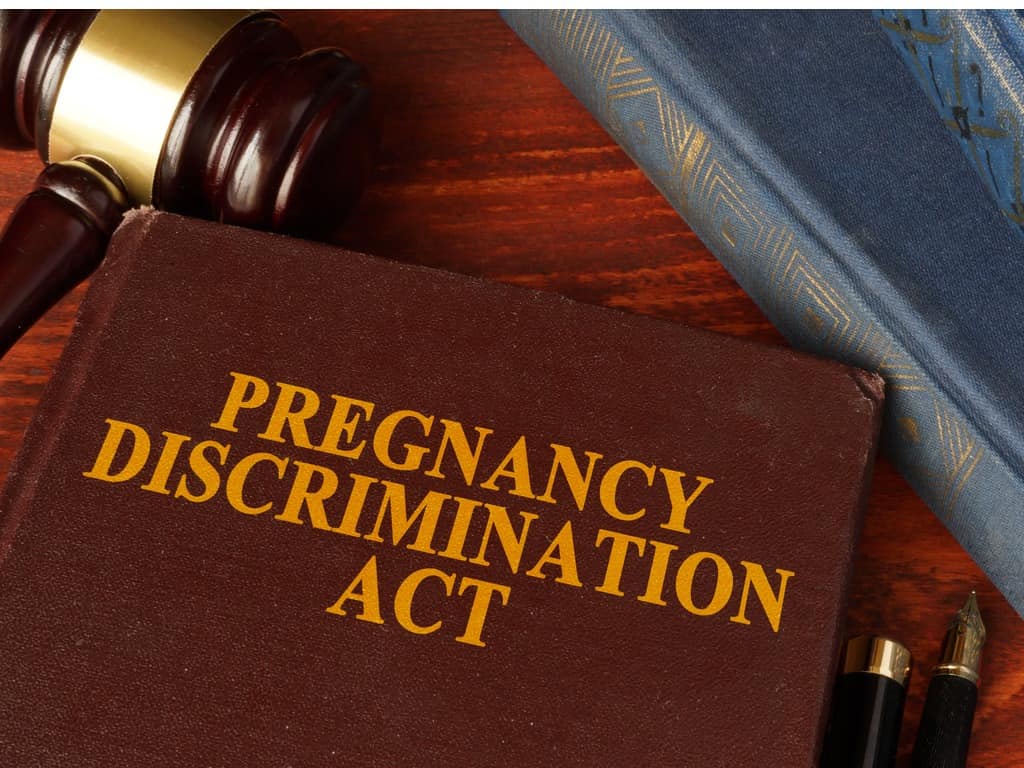At Romero Law, APC, our experienced employment law attorneys understand that California’s employment laws are among the most comprehensive in the nation, providing a solid shield against workplace discrimination for pregnant women.
Despite robust legal protections, California employers continue to violate pregnancy discrimination laws due to a combination of factors such as lack of awareness, inadequate training, and intentional non-compliance.
Some employers may not fully understand their legal obligations under the various state and federal laws, leading to unintentional violations. In other cases, employers might prioritize operational efficiency or cost savings over compliance, disregarding the rights and needs of pregnant employees. Additionally, implicit biases and outdated attitudes toward pregnancy and gender roles can influence managerial decisions, resulting in discriminatory practices.
No matter how it occurs, pregnancy discrimination is unlawful. Women across California must understand their rights and how we can help enforce them when their employer takes illegal action against them.
Which Laws Protect Pregnant Workers in California?
In California, several laws specifically protect women from pregnancy discrimination in the workplace. These laws ensure that pregnant employees are treated fairly and receive appropriate accommodations.
They include:
California Fair Employment and Housing Act (FEHA)
- Protection: Prohibits discrimination based on pregnancy, childbirth, or related medical conditions.
- Coverage: Applies to employers with five or more employees.
- Requirements: Employers must provide reasonable accommodations for pregnancy-related conditions, such as modified duties or additional breaks.
Pregnancy Disability Leave Law (PDL)
- Protection: This law entitles employees to up to four months of job-protected leave per pregnancy for disability due to pregnancy, childbirth, or related medical conditions.
- Coverage: Applies to all employers with five or more employees.
- Requirements: Allows employees to take leave intermittently or on a reduced work schedule if medically necessary.
California Family Rights Act (CFRA)
- Protection: Provides up to 12 weeks of job-protected leave for the birth of a child or for the employee’s serious health condition, including pregnancy.
- Coverage: Applies to employers with five or more employees.
- Requirements: The employee must have worked for the employer for at least 1,250 hours in the past 12 months.
Healthy Workplaces, Healthy Families Act of 2014
- Protection: Provides paid sick leave that can be used for pregnancy-related medical appointments or conditions.
- Coverage: Applies to all employers.
- Requirements: Employees accrue paid sick leave based on hours worked.
Federal Family and Medical Leave Act (FMLA)
- Protection: Provides up to 12 weeks of unpaid, job-protected leave for the birth of a child or for the employee’s serious health condition, including pregnancy.
- Coverage: Applies to employers with 50 or more employees; all public agencies are covered, regardless of the number of employees., and all public and private elementary and secondary schools, regardless of the number of employees.
- Requirements: The employee must have worked for the employer for at least 1,250 hours in the past 12 months.
California’s Workplace Health and Safety Laws (Cal/OSHA)
- Protection: Ensures a safe working environment for all employees, including pregnant women.
- Coverage: Applies to all employers.
- Requirements: Employers must provide a safe and healthy workplace, which includes accommodating the needs of pregnant employees.
These laws collectively provide comprehensive protection for pregnant employees in California, ensuring they are not discriminated against and receive necessary accommodations and leave. The question becomes, what can pregnant women do when they have been discriminated against at work? We have answers.
What are the Legal Remedies for Pregnancy Discrimination in California?
Employees can file a complaint with the California Civil Rights Department (CRD) within one year of the discriminatory act. The CRD may investigate and mediate the complaint, potentially resulting in a resolution without litigation. If the CRD does not resolve the complaint, it can issue a “right to sue” notice, allowing the employee to file a lawsuit in civil court.
From there, California employees who experience pregnancy discrimination have several specific legal remedies available to them under state law, including:
- Reasonable Accommodation: Employers are required to provide reasonable accommodations for pregnancy-related conditions. Failure to do so can result in legal action and similar remedies as other discrimination claims.
- Reinstatement and Back Pay: The court may order the employer to reinstate the employee to their previous position and provide back pay for wages lost due to the discriminatory act.
- Front Pay: If reinstatement is not feasible, the employee may be awarded front pay, which covers future lost earnings.
- Injunctive Relief: The court may issue orders requiring the employer to cease discriminatory practices and take specific actions to prevent future discrimination.
- Compensatory Damages: Employees may be entitled to compensatory damages for lost wages, benefits, and emotional distress caused by the discrimination.
- Punitive Damages: In cases of particularly egregious conduct, employees may seek punitive damages to punish the employer and deter future violations.
Attorney’s Fees and Costs: Successful plaintiffs may be awarded attorney’s fees and litigation costs, making it financially feasible to pursue a claim.
By leveraging these legal remedies, employees in California can seek justice and ensure their rights are protected against pregnancy discrimination. Consulting with the skilled employment attorneys at Romero Law, APC, can guide the best action and increase the likelihood of a successful outcome.
Contact Our Attorney at Romero Law, APC Today
Contact our experienced Los Angeles County pregnancy discrimination attorneys today to discuss your unique circumstances. Our employment law firm and bilingual staff offer services in both English and Spanish and are available to discuss your case by calling (626)-396-9900 or contacting us online.


 (626) 396-9900
(626) 396-9900